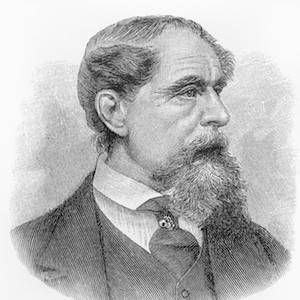
Let’s Stop Pretending Dickens Was The Platonic Ideal of Very Serious Literature
When I was a classic literature blogger, the man’s picture was part of my masthead. His name strikes dread in the heart of many a high school student. And for reasons I’m not entirely sure of, modern literary critics (both real and self-styled) hold him up as the ideal of Real Literature- after all, his books are so very LONG and HEAVY in both literal and literary ways, unlike books written today *shoves The Goldfinch and The Luminaries and 2666 behind a curtain*.
I love the man’s work- if there’s a more affecting and thought-provoking and gut-wrenching novel than Bleak House out there, I haven’t read it yet- but I do so wish we would stop using him as the catch-all representation of literary perfection when we’re talking about the problems (or whatever) of the modern reading life. We’re all so distracted by Twitter and Facebook and The Internetz– how will we ever read Dickens? What would Dickens think? WWDD? He’s curiously held up as a timeless source of pure “plot-based highs” in pieces that turn around and criticize YA novels as having too-neatly wrapped-up endings. Have you actually READ any Dickens to the end? I mean honestly.
I’m not questioning Dickens’s place in the canon; he obviously belongs there for what he did for the novel’s form and for his bizarre characters that worm their way into your psyche and his intricate plotting (made even more impressive since his books were released as monthly or weekly serials). What I am questioning is his place as the writer we turn to when we want to make other people feel bad about what they’re reading.
Dickens is famously one of the first novelist-celebrities, one whose works were all adapted to the stage during his lifetime. He was so famous at home and abroad that when he went on tour to America, the adoration of the crowds made him miserable. Fans peered into his boat cabin windows to get a peek at him while his wife was asleep in their bed. He was, in short, a mega-famous best-seller, recognized, read, and beloved by both the literati (though not all critics- fellow novelist George Meredith called him “the incarnation of cockneydom, a caricaturist who aped the moralist”) and by the general reader. He was his day’s Stephen King, J.K. Rowling, and even Dan Brown, an author whose infamous cliff-hanger chapter endings rival many of Dickens’s similarly cliff-hangered installment endings.
He was a commercial fiction writer. He published his works in serial form, mostly in literary journals, often changing the tales as he went in response to his audience’s reaction (not, notably, in service to some Higher Art, but in service to what people wanted to read). He wrote sentimental dramas with tidy, often happy and romantic, endings- a bit like our modern soap operas. Much of his fiction was the vehicle through which he preached his message about the poor, sanitation, and child labor, using fiction to make pointed statements about modern social issues? Sort of like Jodi Picoult? It served him well: he died a wealthy man.
So perhaps critics who bemoan the death of the novel (as if it’s a new moan) should pick a new patron saint. One who didn’t write melodramatic stories designed to draw attention to the “common” poor instead of to ivory towers of the social or literary variety. One who didn’t publish his work in titillating ways, designed to drive sales. One who wasn’t just so damn good at what he did. Because what they mean when they say “the novel is dead” is that the Very Serious Intellectual Novel That Not Very Many People Read is dead…but those aren’t the kind of novels Dickens ever really wrote.














